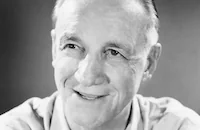Panthea
Cast & Crew
Allan Dwan
Norma Talmadge
Earle Foxe
Roger Lytton
George Fawcett
Murdock Mcquarrie
Film Details
Technical Specs

Synopsis
Panthea is a brilliant young Russian pianist who marries English composer Gerard Mordaunt. Her husband is losing his sanity because he has failed to produce an opera that he has written, and the sight of his suffering forces Panthea to sacrifice herself to the elderly Baron de Duisitor on condition that the opera be produced. Soon after the opera becomes a success, Panthea is arrested by the Russian government for her supposed involvement in a Nihilist plot and is exiled to Siberia. When Gerard learns of the cost at which his success has been gained, he is at first revolted, but later comes to realize the motive for Panthea's actions and follows her to Siberia. Meanwhile, Gerard's father, learning of their plight, uses his political influence to obtain a pardon for the couple, and they are freed to begin life anew in England.

Director

Allan Dwan
Cast
Norma Talmadge
Earle Foxe
Roger Lytton
George Fawcett
Murdock Mcquarrie

Count Erich Von Stroheim
Norbert Wicki
William Abingdon
Winifred Harris
Eileen Persey
Stafford Windsor
Dick Rosson

Frank Currier
Herbert Barry
Jack Meredith
Henry Thorpe
William Lloyd
J. S. Furey
Charles Frankman
Crew

Film Details
Technical Specs

Quotes
Trivia
Erich Von Stroheim, hired as an assistant director and also to play the leader of a troop of soldiers, was so realistic in his sadistic treatment of his men that the actors rebelled and beat him up. Director Allan Dwan removed him from the cast for his own protection.
This film is presumed lost. Please check your attic.
Notes
This was Norma Talmadge's first film for her own production company, and her first to be distributed by Selznick. It was shot at the Biograph studio in New York. Some contemporary sources give the film's length as seven, instead of five, reels. The actress playing Gerald's sister, whose name is spelled in a variety of ways by contemporary reviewers, is probably Eileen Percy. One modern source gives Mildred Considine the scenarist's credit, though the copyright holdings and other contemporary sources credit Dwan. Various modern sources credit Harold Rosson as cinematographer along with Roy Overbaugh. According to the 1918 MPSD, Henry Grant worked on the film in the capacity of actor, assistant director or writer. In a modern interview, Dwan stated that Erich von Stroheim served on the film as an assistant director as well as an actor. Both modern and contemporary sources dispute von Stroheim's status as a count. One modern source gives the film's release date as January 6, 1917. Selznick re-released the film on August 2, 1920.












